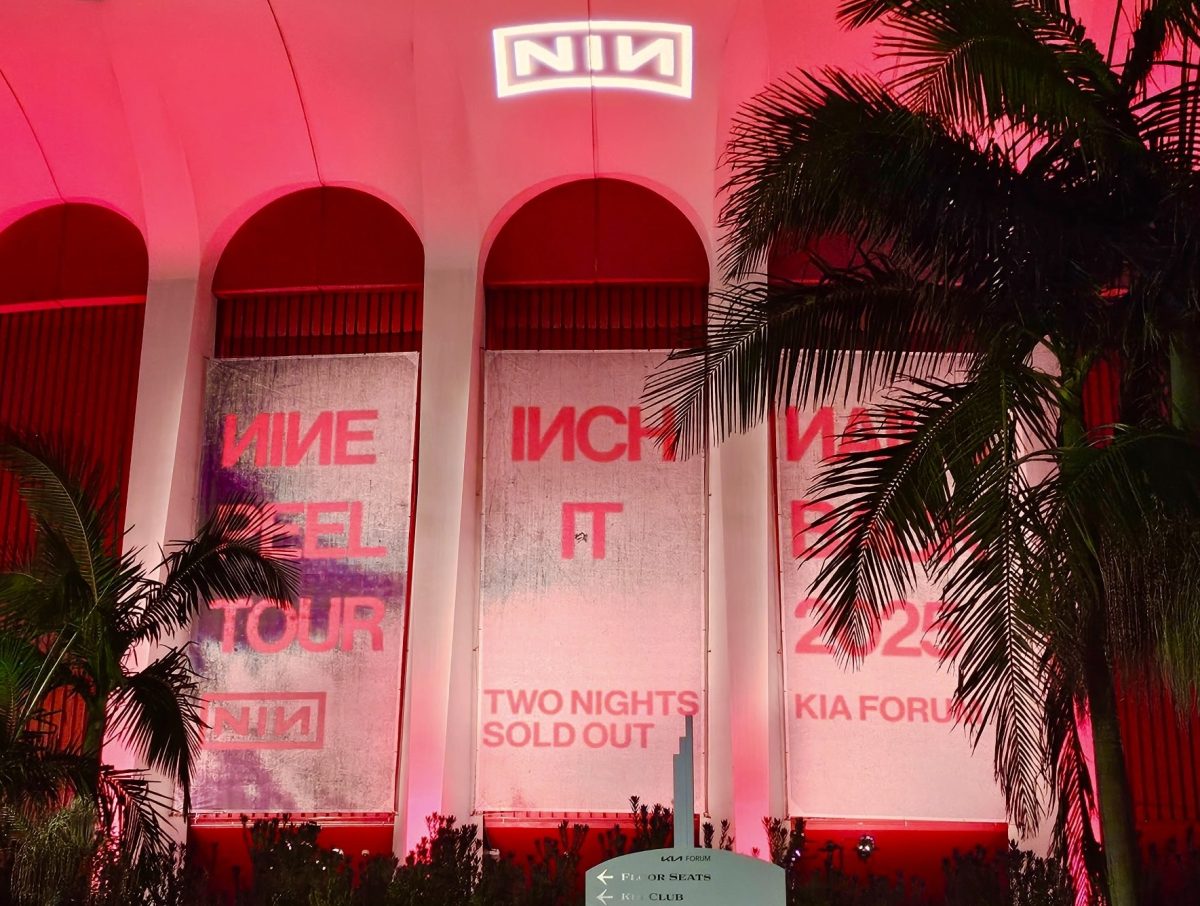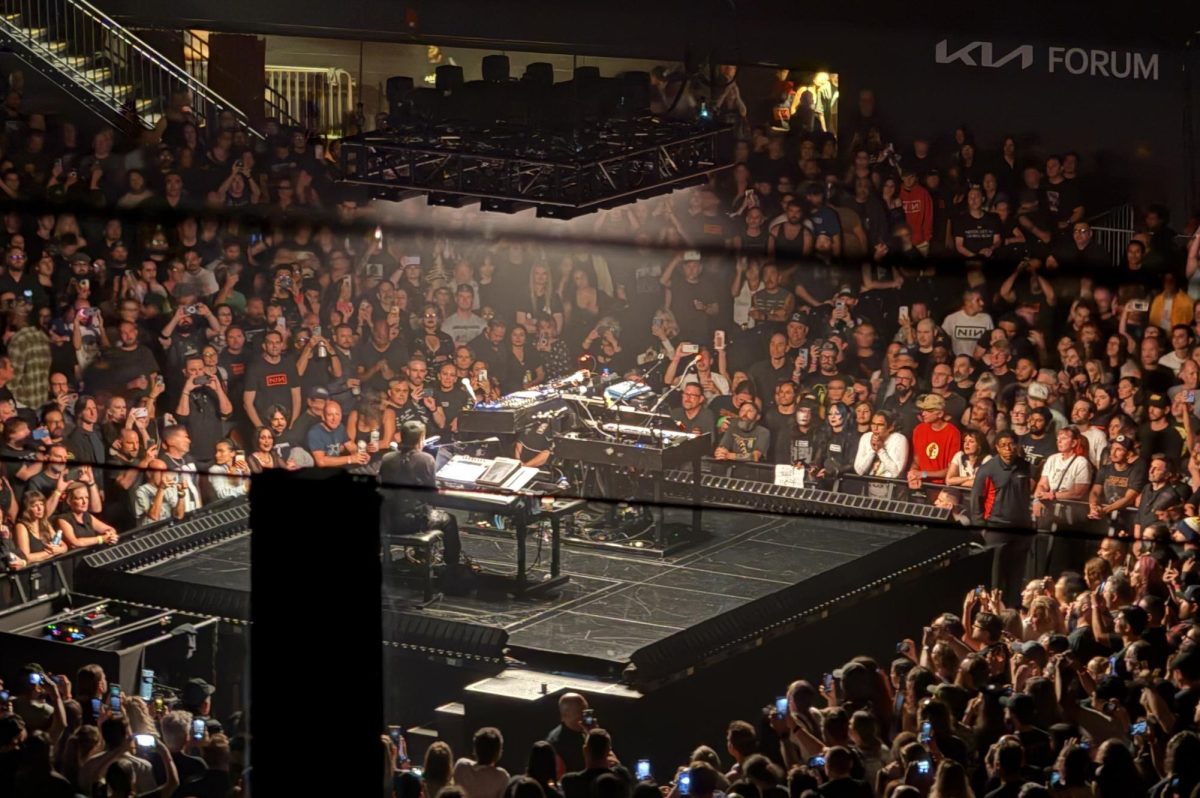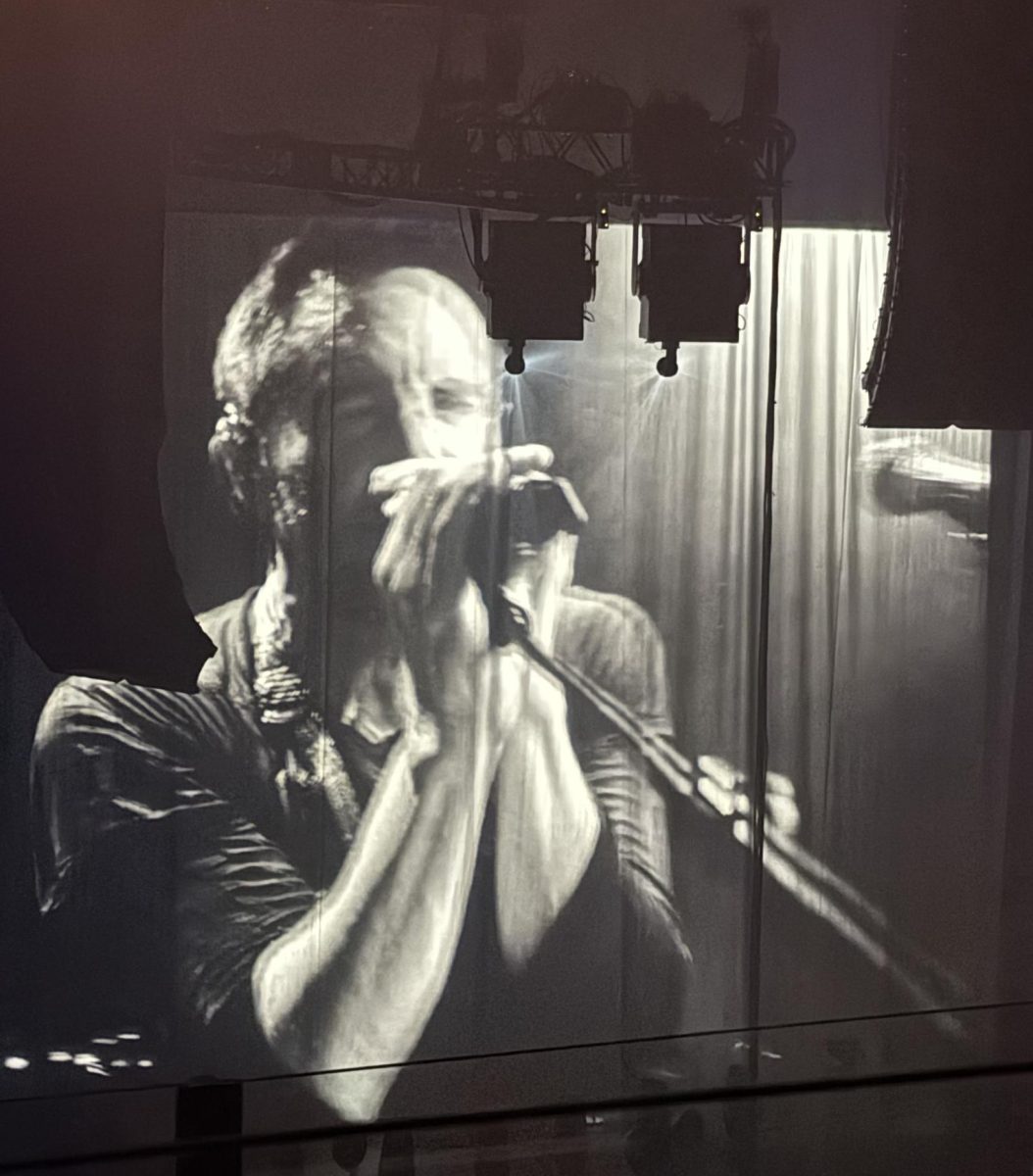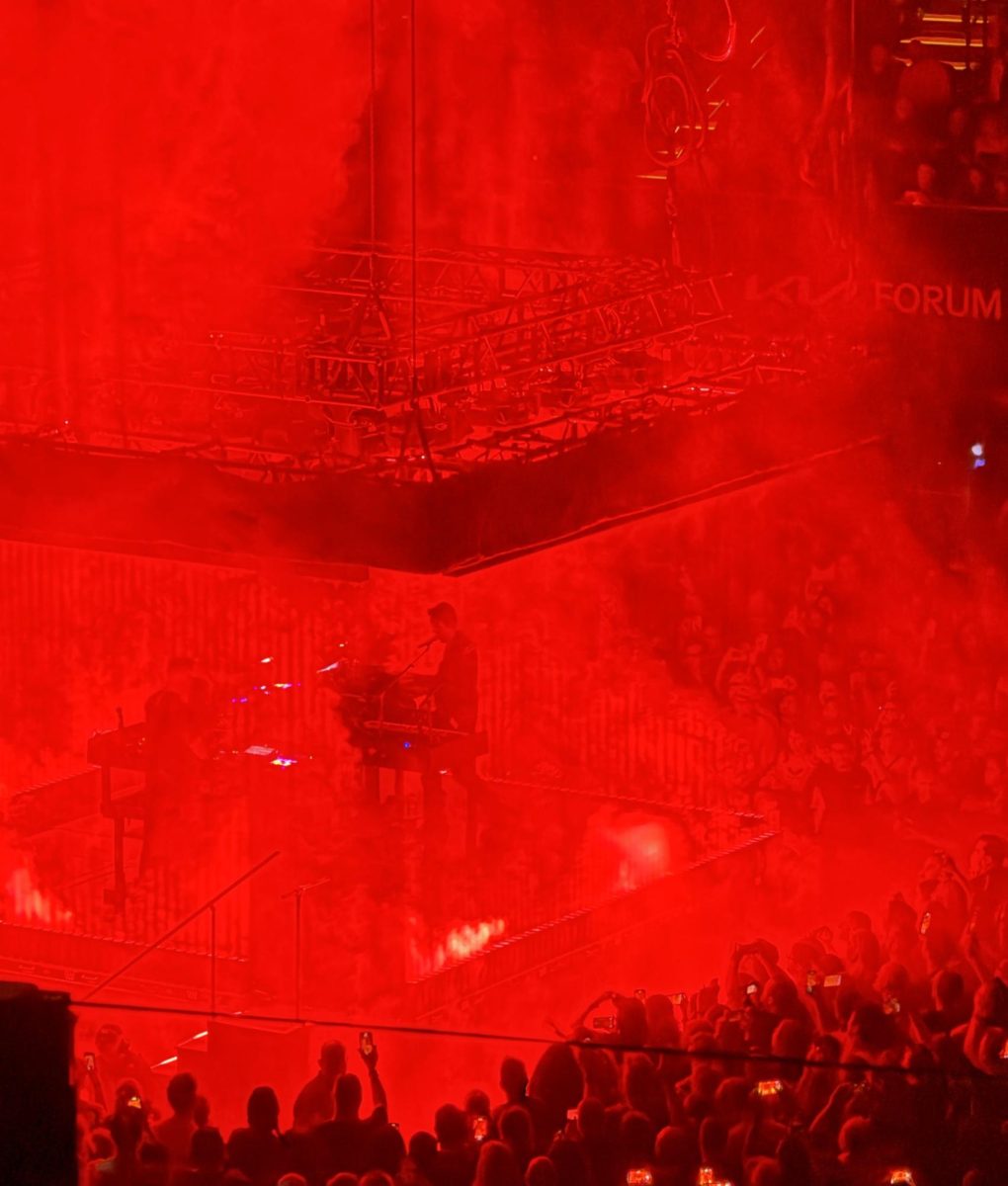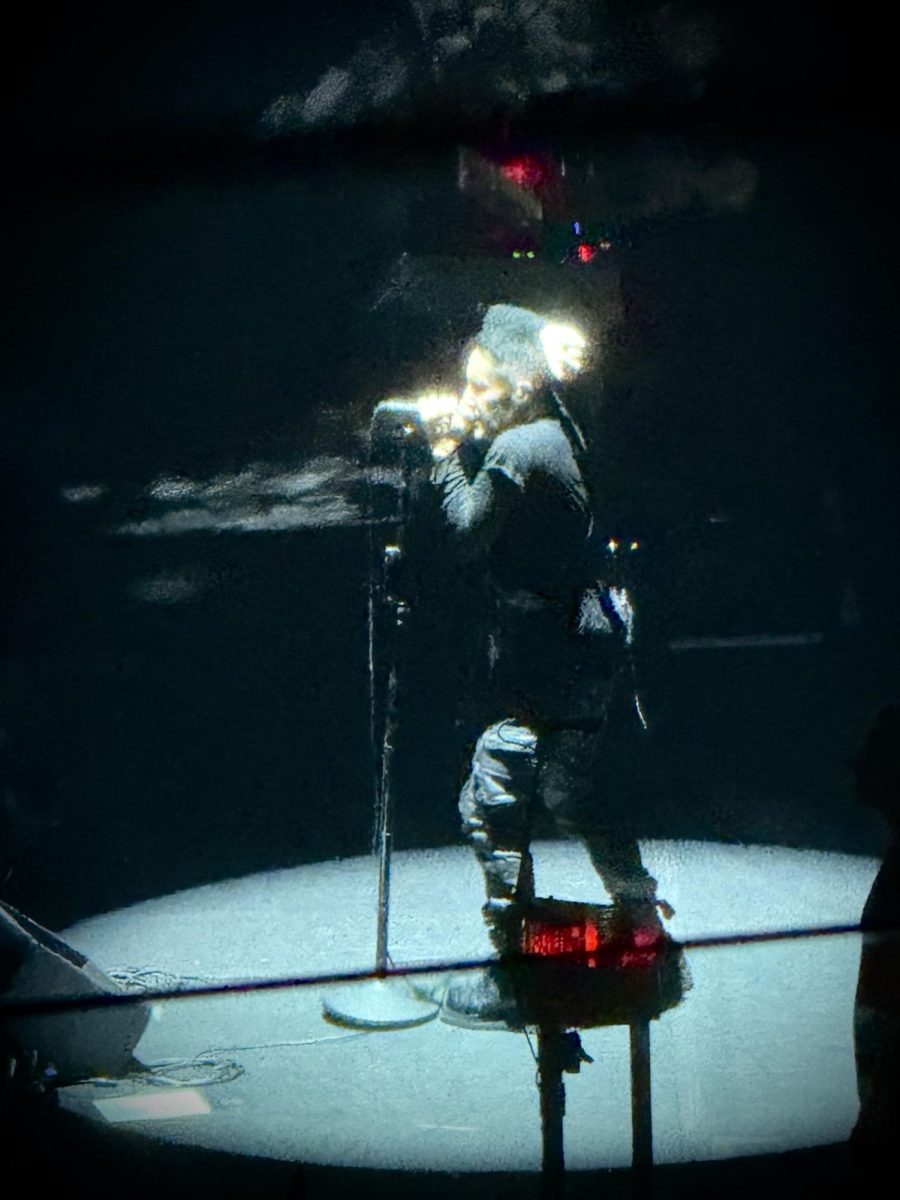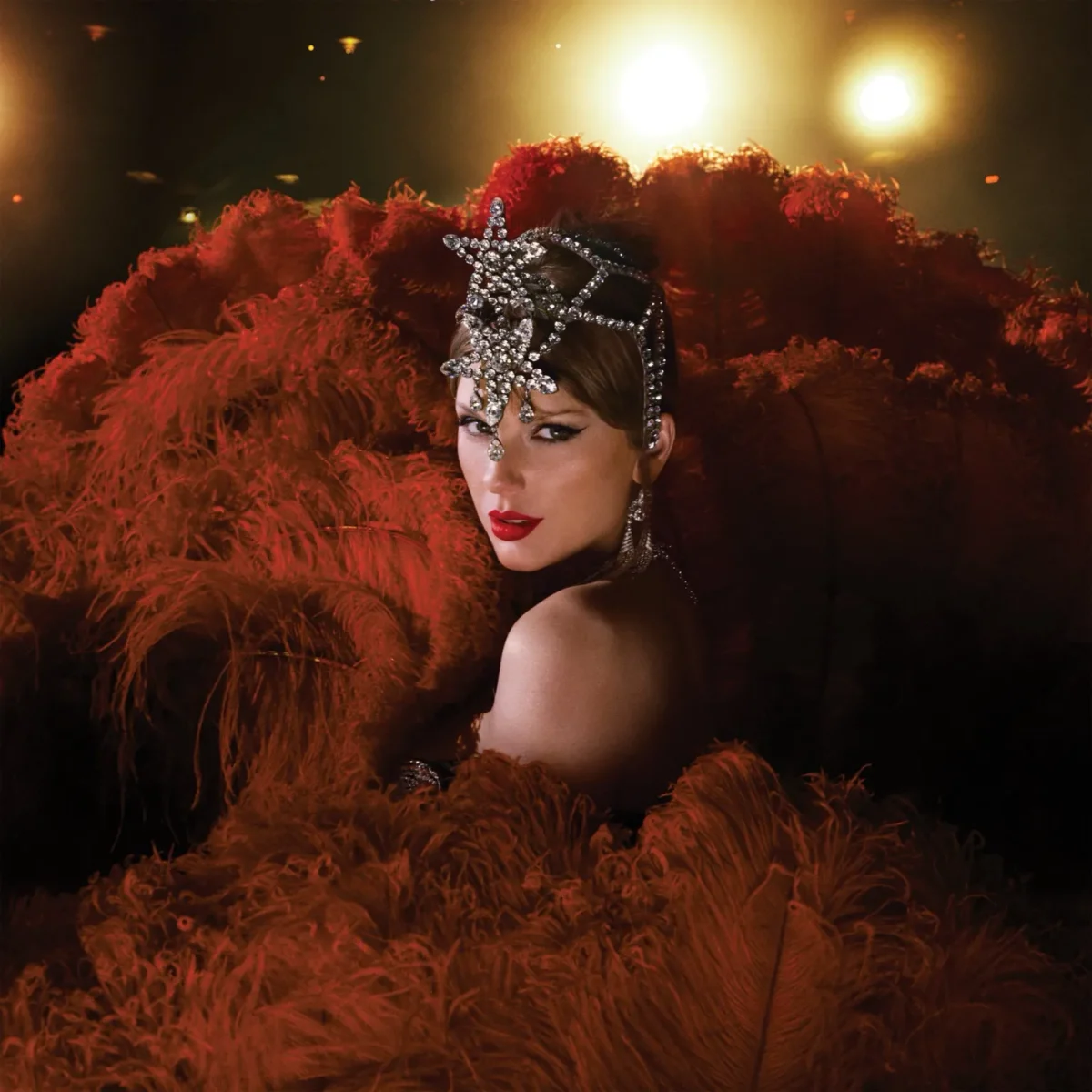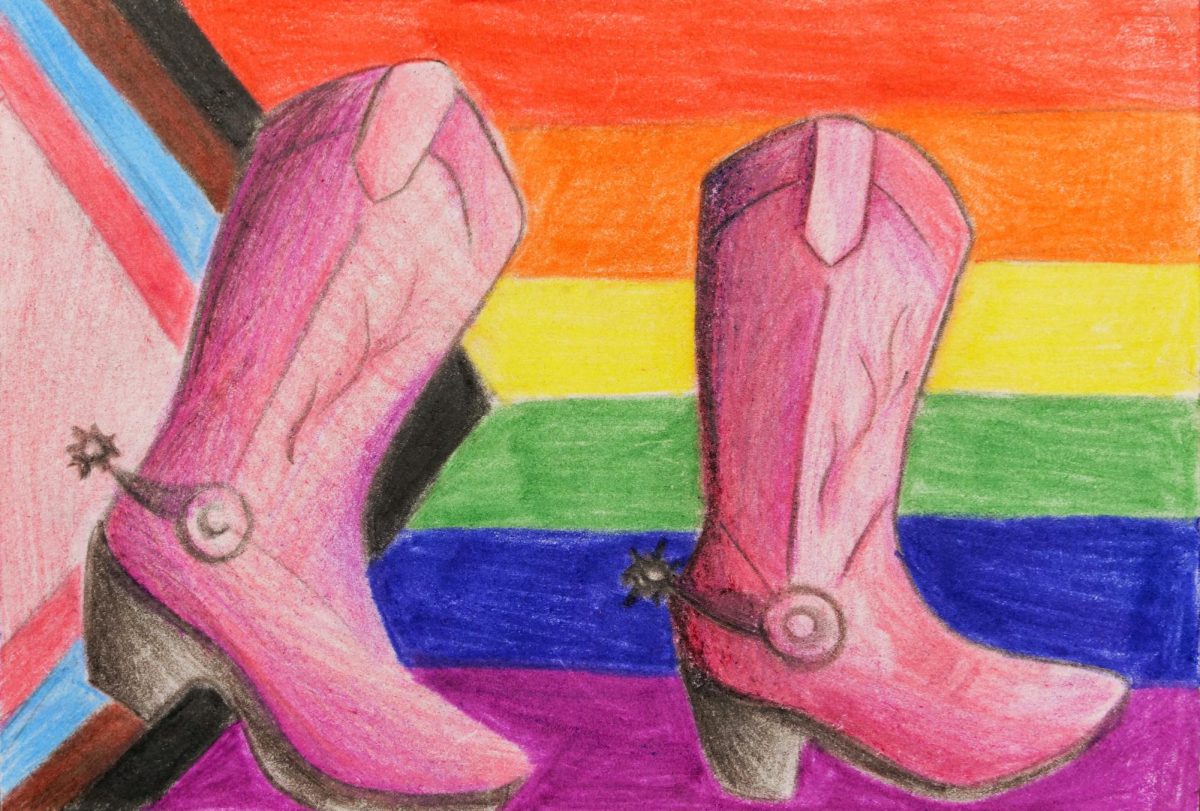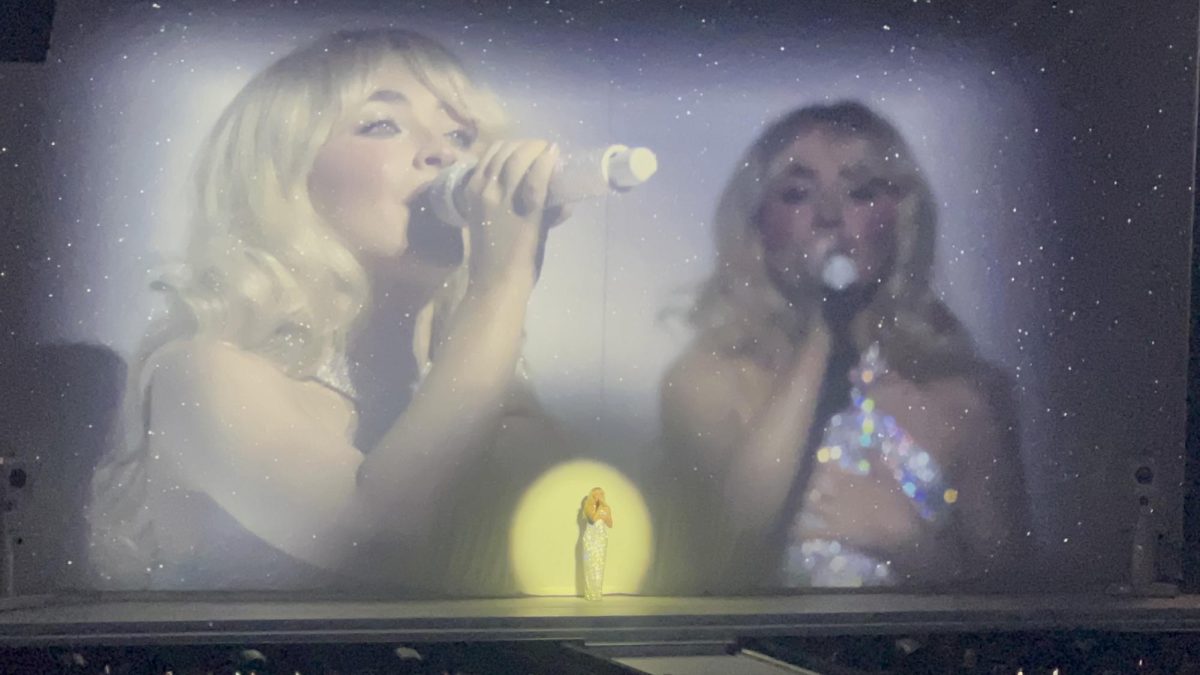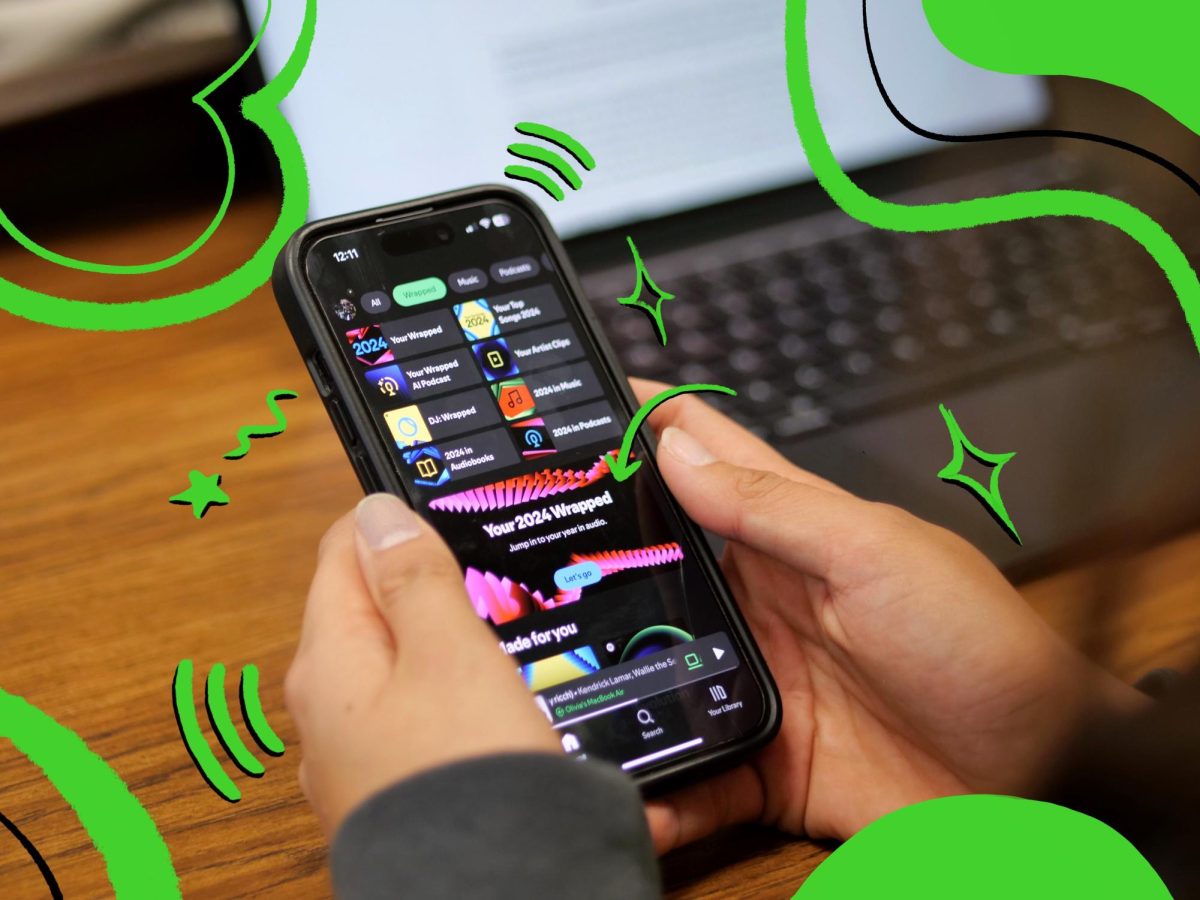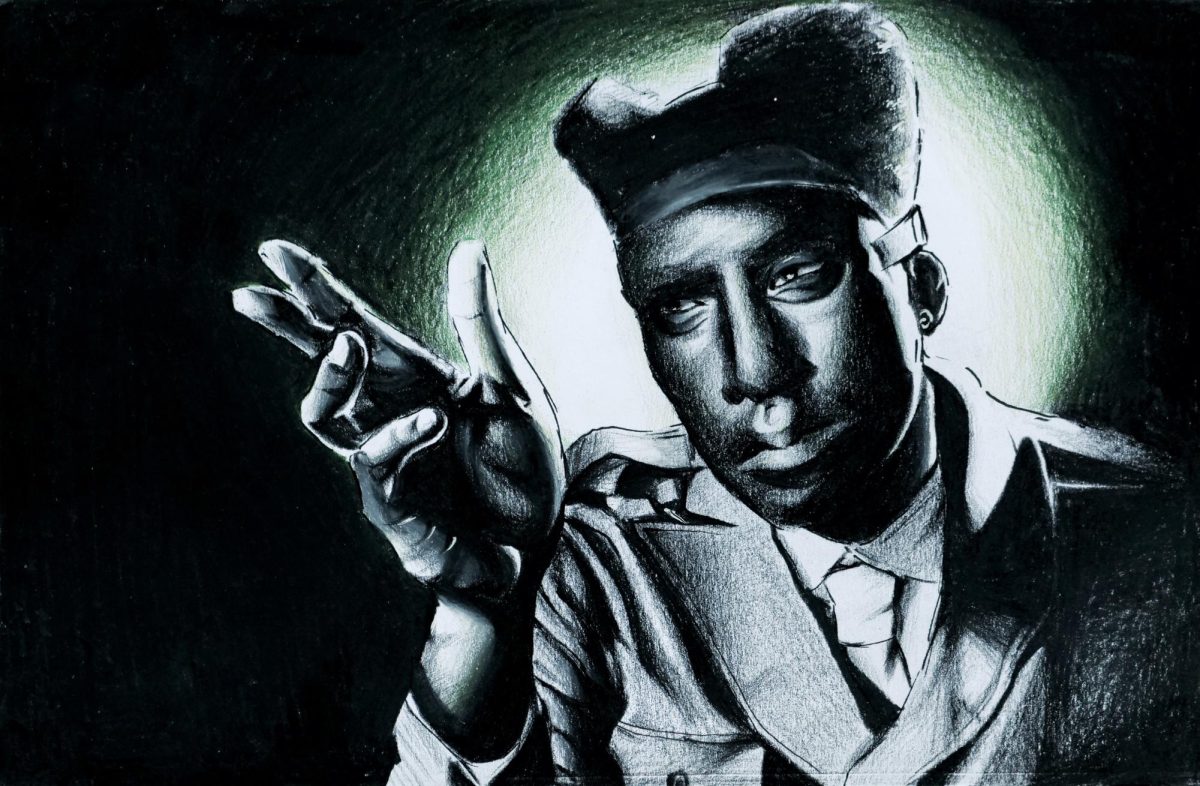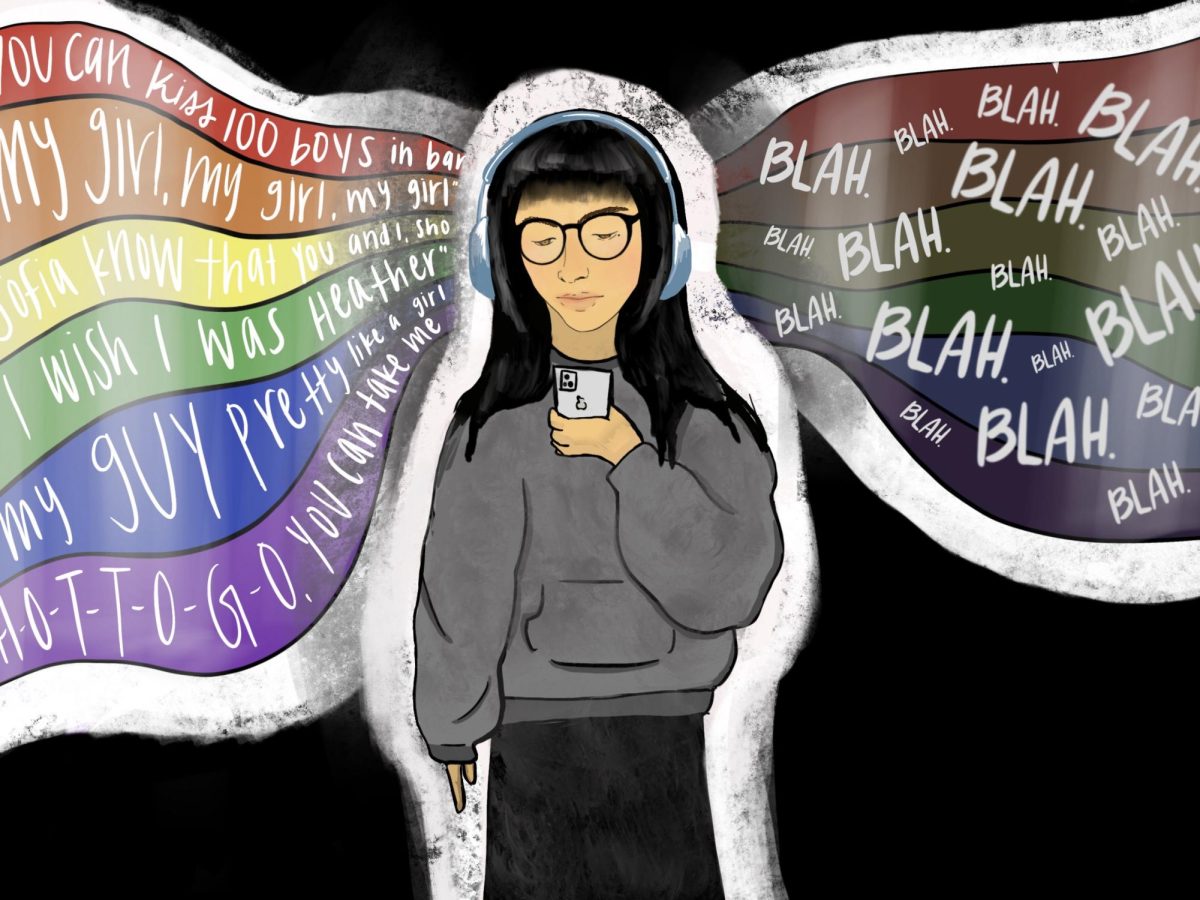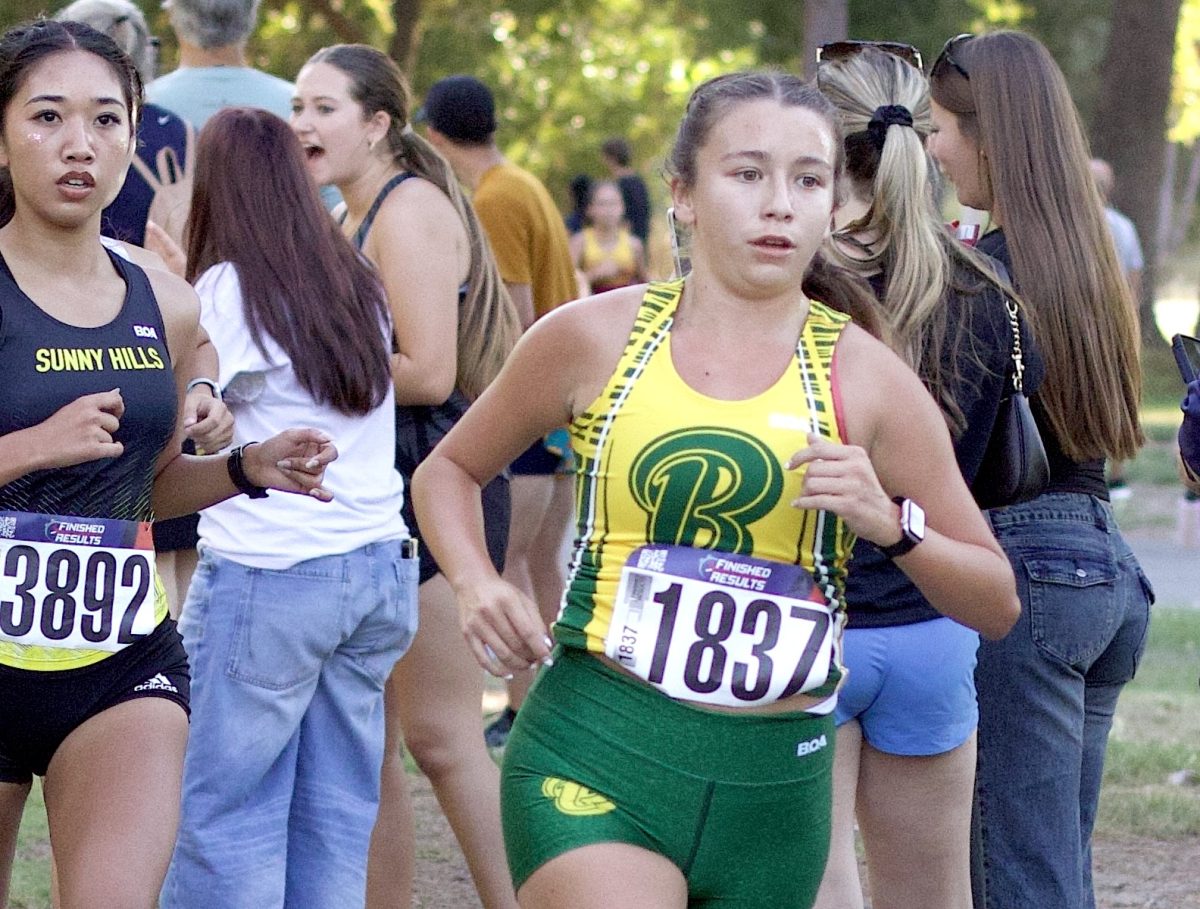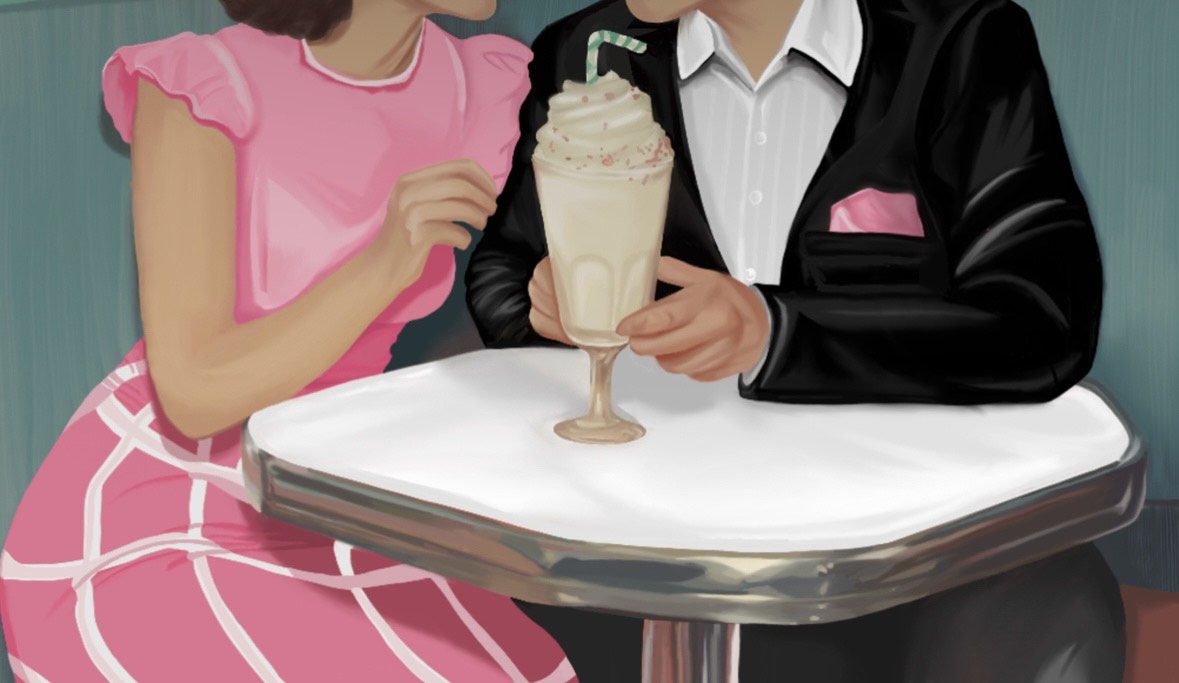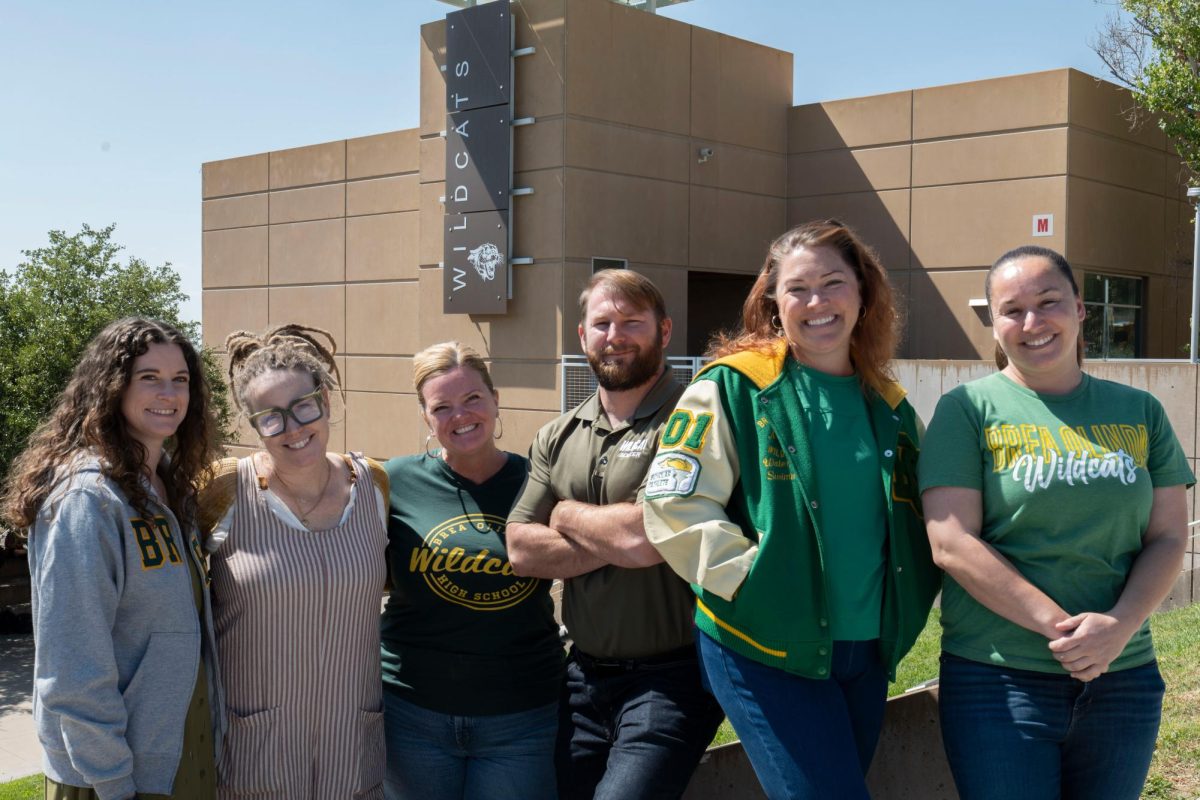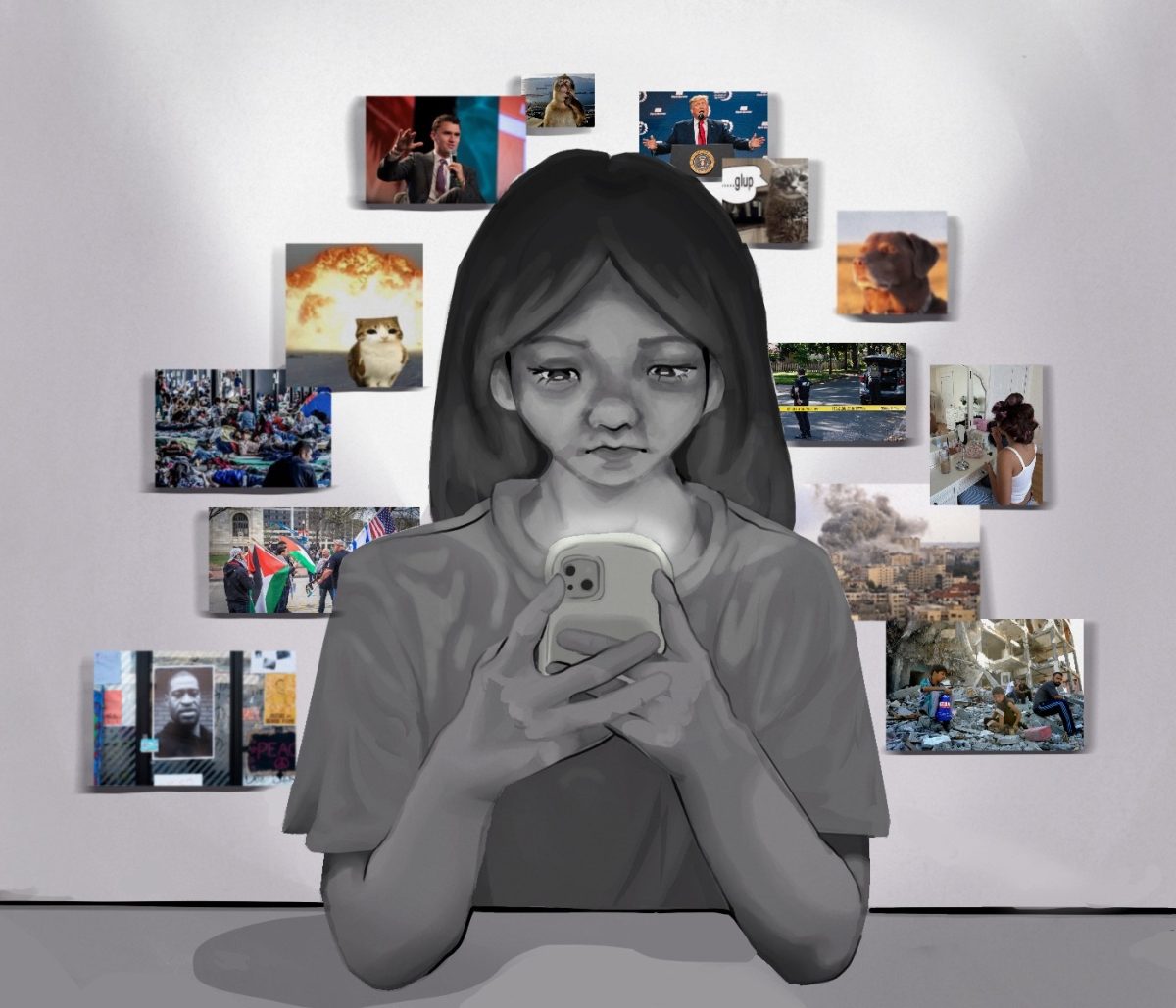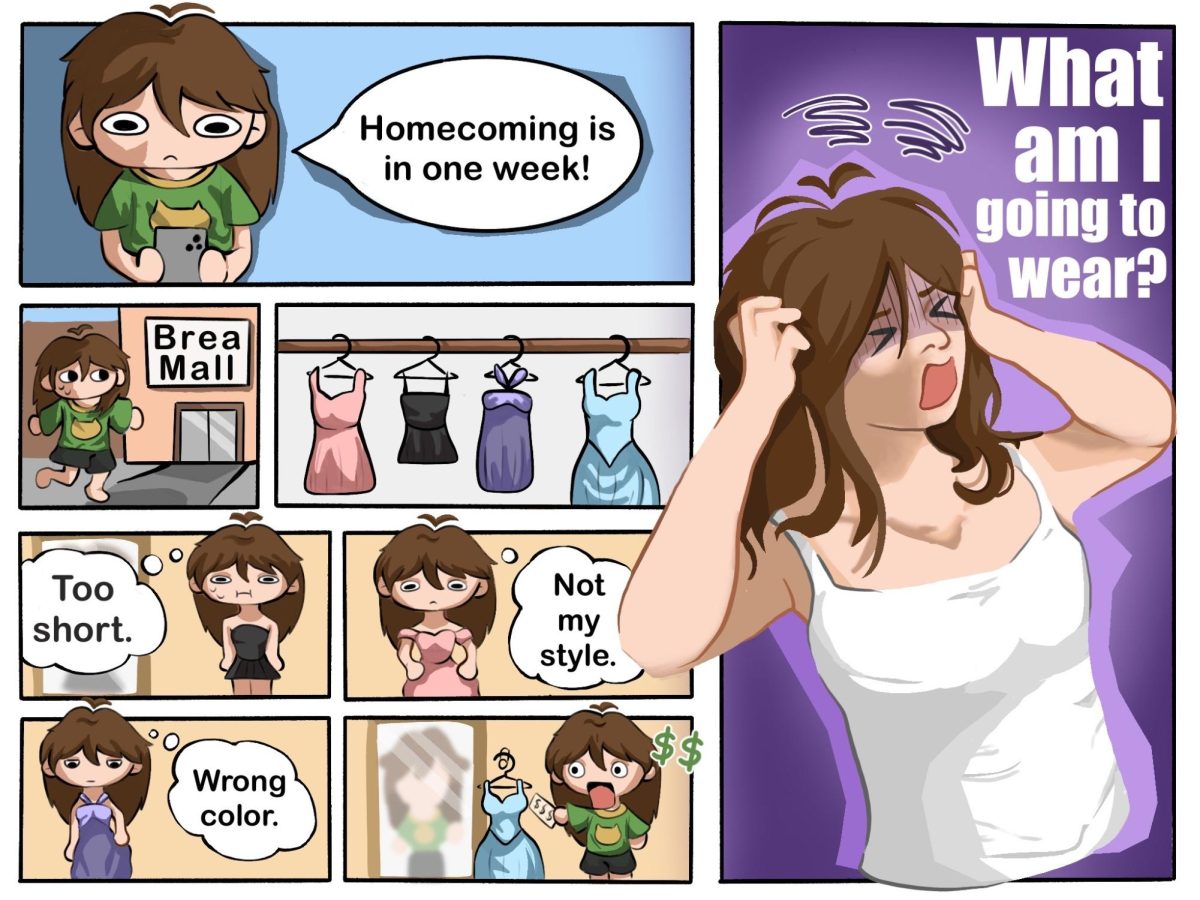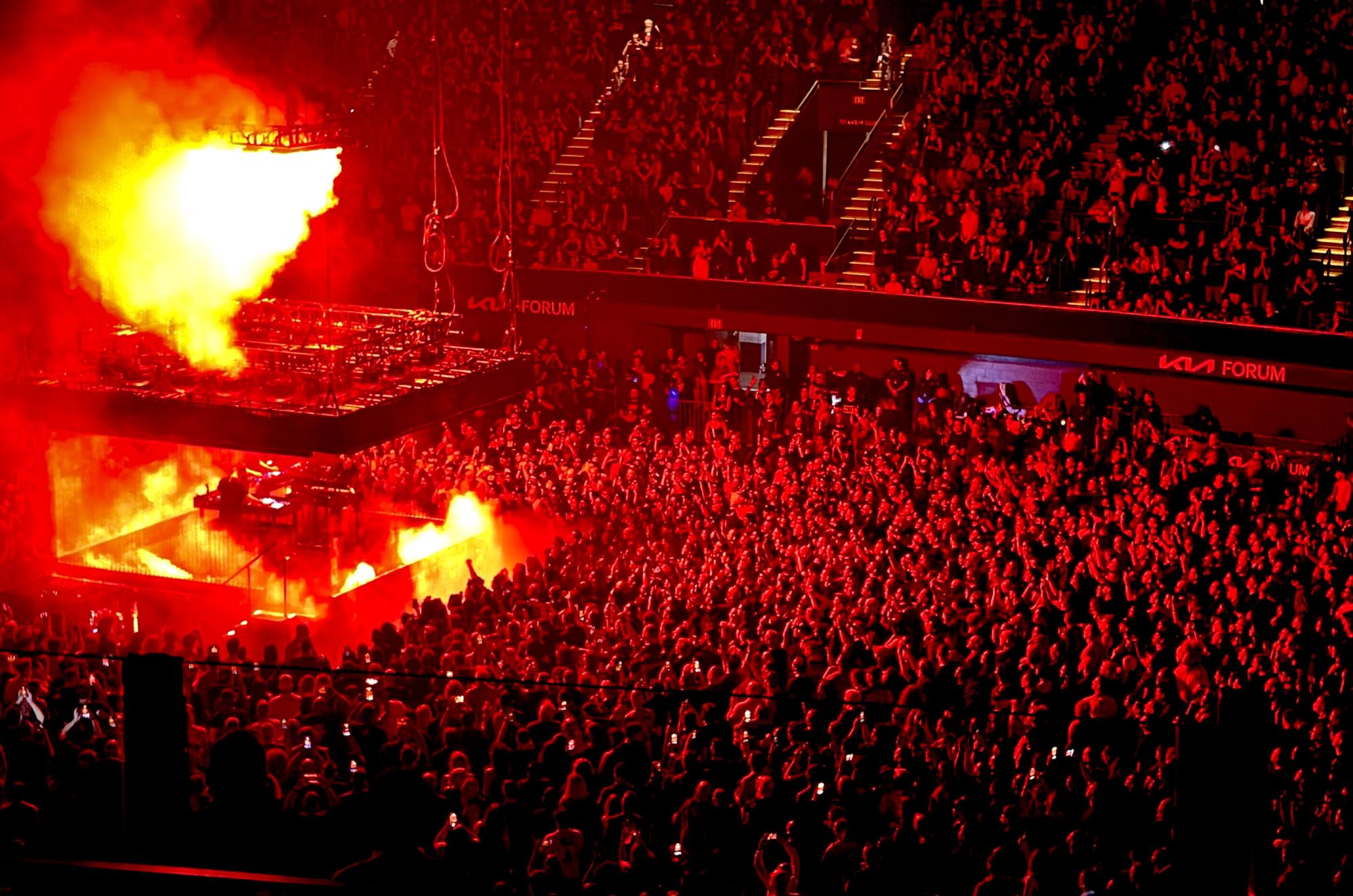
Nine Inch Nails Concert Review: The Best Kind of ‘Hurt’ at NIN’s L.A. Tour Stop
I felt like I belonged.
Bold “NIN” tattoos on the most loyal fans’ arms; thick, spiked boots adorned with chains and buckles; heavy, jetblack leather jackets covered in buttons and straps; meticulously painted black-and-white makeup to tie the gothic aesthetic together.
The experience had begun, and I wasn’t even inside the stadium yet.
I was standing outside L.A.’s Kia Forum about to experience Nine Inch Nails’ “Peel it Back” tour, and about to enter my first ever concert.
But let’s rewind to March 22, 2023 and the night I discovered Nine Inch Nails.
The radio in my aunt’s car was tuned to KROQ and I was mesmerized by the synthetic, industrial beats and despairing lyrics of, what I soon discovered, was the band’s biggest hit, “Closer.”
The song is intense and I felt sort of disgusted by it, but also enthralled by the lyrics and the lead singer’s growl and self-loathing. I found myself tapping the dashboard with each clash of the kick drum.
The song ends with the lyrics, “You are the reason I stay alive,” and immediately I longed for the track to play again. The song was unfiltered, raw and I couldn’t wait to hear it again.
But let’s rewind even further back, to before I was even born.
Trent Reznor, the front man of NIN, used his background with instruments — from saxophones, to tubas, to synthesizers — and song-writing from affiliations with ‘80s bands to find his voice, which he ultimately discovered in his very own journals. The entries — vulnerable, anguished, profane — became the blueprint for Nine Inch Nails.
Unable to find a band that could execute his sound and vision, he played all of the instruments himself.
Co-producing with Mark Ellis (better known as “Flood”), they achieved two albums and one EP: Pretty Hate Machine, The Downward Spiral, and Broken.
Nine Inch Nails’ debut album, Pretty Hate Machine, released in 1989, landed like lightning, its popularity fueled by the rebellious, tumultuous “Head Like A Hole,” and its pulsating beats and nihilism in lyrics like “Head like a hole / Black as your soul / I’d rather die / Than give you control.”
Reznor, a literal one-man band, began including other musicians to his act, but strictly for live performances to more efficiently translate his music in concert.
His second album, 1994’s The Downward Spiral, further grew NIN’s fanbase with complex and introspective lyrics that resonated with metalheads, goths, and connected with developing teens to struggling adults. It had more rock and more emotion than Reznor’s debut.
While NIN members came and went, Atticus Ross — programmer, lyricist, producer — has been with Reznor since 2016, a partnership that ultimately led to the Oscar-winning scores for The Social Network (2010) and Soul (2020).
Despite his many film scores, Reznor longed to return to his music that once shocked culture, to return to his roots.
Hence, the “Peel it Back” tour.
Fast forward to the present.
The atmosphere upon entering the arena was blood-tinted lights, heavy beats from the preshow that punched my nerves, and the packed stadium had me shoulder-to-shoulder with thousands of others.
The lights blinked off. Total darkness. The show, which I’d been anticipating since that March 22 car ride, was about to start.
A ring of ambient lights eerily spotlighted the second stage that sat in the middle of a sea of faces, unveiling Reznor and a piano to the packed arena. He sat patiently, politely, the opposite of the wailing, angry front man from the NIN music videos of the ’90s.
The crowd of 17,000, raucous earlier, was hushed by delicate, rhythmic pings of the piano that teased the instrumental “Right Where It Belongs” from 2005’s With Teeth.
And then, softly, Reznor crooned, “See the animal in his cage that you built.” His vocals were soft but with a suppressed tension, quietly hinting at the melancholy and grit to come.
As he choked out the final lines, “Would you find yourself — find yourself afraid to see?,” I was near tears.
Then, to waves of applause, members of NIN appeared on stage, one-by-one — bassist Alessandro Cortini, Ross, and vocalist and guitarist Robin Finck.
The 1994 track “Ruiner” roared to life next as Cortini, guitar pressed to his hip, dug into the night’s first brutal rift, and the familiar distortion and harsh electronic sounds of Nine Inch Nails. Reznor’s voice shifted between piercing and measured, over a percussive, relentless bass. The lights basked Reznor in a yellow glow as he struck the piano’s keys with vigor as he sang the refrain,
You didn’t hurt me
Nothing can hurt me
You didn’t hurt me
Nothing can stop me now.
At song’s end, Reznor stood from his seat, unhooked his microphone, walked along the stage’s edge, and sang the opening lines to “Piggy” from The Downward Spiral: “Nothing can stop me now / ‘Cause I just don’t care.”
With the song’s final chords still ringing, Reznor, Finck, and Cortini stepped off the stage, leaving new drummer, Josh Freese, alone with his drum kit.
Freese’s silhouette was projected onto white curtains that shielded the main stage from the audience. The drummer, whose image towered over the crowd, executed a skilled, seething solo.
As the drumming came to an end, the curtain rose, revealing the band and Reznor, who seemed to vibrate with energy. “I wish there was something real!” he shouted into the microphone, triggering mosh pits in the middle of the stadium. Hundreds tossed themselves around, swirling, shoving, and slamming into each other as Reznor wailed.
“March Of The Pigs,” also from The Downward Spiral, played next, its opening lyrics “Step right up, march, push / Crawl right up on your knees” fueling the violent moshing, which didn’t abate, even when the heavy rock descended to a quiet chorus.
But what seemed to be a moment of silence to quell the frenzy, was instead the eerie intro to 1994’s “Reptile.”
Clanks of machinery squealed throughout the venue, spirals of green smoke swirled around the stage, and people swayed their bodies to the sharp cries of Cortini’s guitar.
“Gave Up,” from the 1992 movie Broken, was a showcase for Finck. As the chorus rose in intensity, Finck screamed into a distorted microphone. Red and blue lights flashed to the lyrics,
Smashed up my sanity
Smashed up integrity
Smashed up what I believed in
Smashed up what’s left of me
Smashed up my everything
Smashed up all that was true
Gonna smash myself to pieces
I don’t know what else to do
And the crowd jumped and shoved to every syllable.
Then, to the delight of the audience (especially those in the pit), Finck, Cortini, and Ross jumped from the stage, excitedly interacting with fans, clasping hands and smiling.
Once they stepped on the stage, another track had already queued, the beginning of “Closer,” the song that ignited my adoration for the band.
That hypnotic heartbeat beat, the infamous introduction (“You let me violate you / You let me desecrate you / You let me penetrate you / You let me complicate you”) sent me back to the front seat of my aunt’s car, tapping my fingers on her dashboard.
Reznor’s voice dripped with lust.
I blushed, my skin crawled with discomfort.
“Mr. Self Destruct” began next — more achingly vulnerable lyrics, more bellowing guitars, more crashing synths, and more gorgeous melodies.
“I’m Afraid Of Americans” followed, then “The Hand That Feeds.”
With “Head Like A Hole,” the 1989 hit from Pretty Hate Machine, bass reverberated throughout the stadium and both the crowd and Reznor shouted the lines, “Head like a hole / black as your soul / I’d rather die / Than give you control.”
“Hurt” was the night’s final song. Reznor’s pained delivery of every line was the vocal equivalent of opening a freshly healed wound. Again, tears blurred my vision, as again, Reznor sang with vulnerability.
Thousands held their phones aloft, lights undulating from the pit to the nosebleeds.
The curtain fell as the rift slowly faded to silence.
17,000 of us stood under the Forum’s lighting, dazed.
– NIN –
Reznor and NIN are aggressive and boisterous, messy and raw. The band’s songs are not just about love, nor just about the simple struggles in life; they are about the struggle to live, they are about addiction and self-loathing; they are about me.
Your donation supports the student journalists at Brea Olinda High School! The contribution will help us purchase equipment, upgrade technology, and cover our annual website hosting costs.




